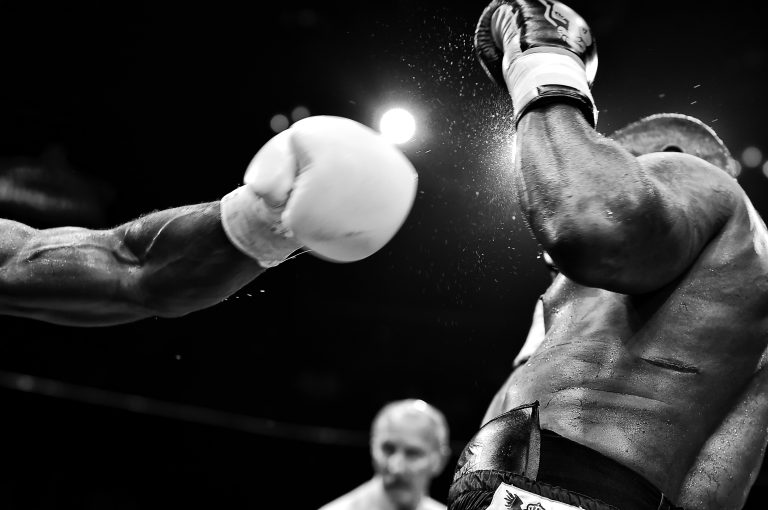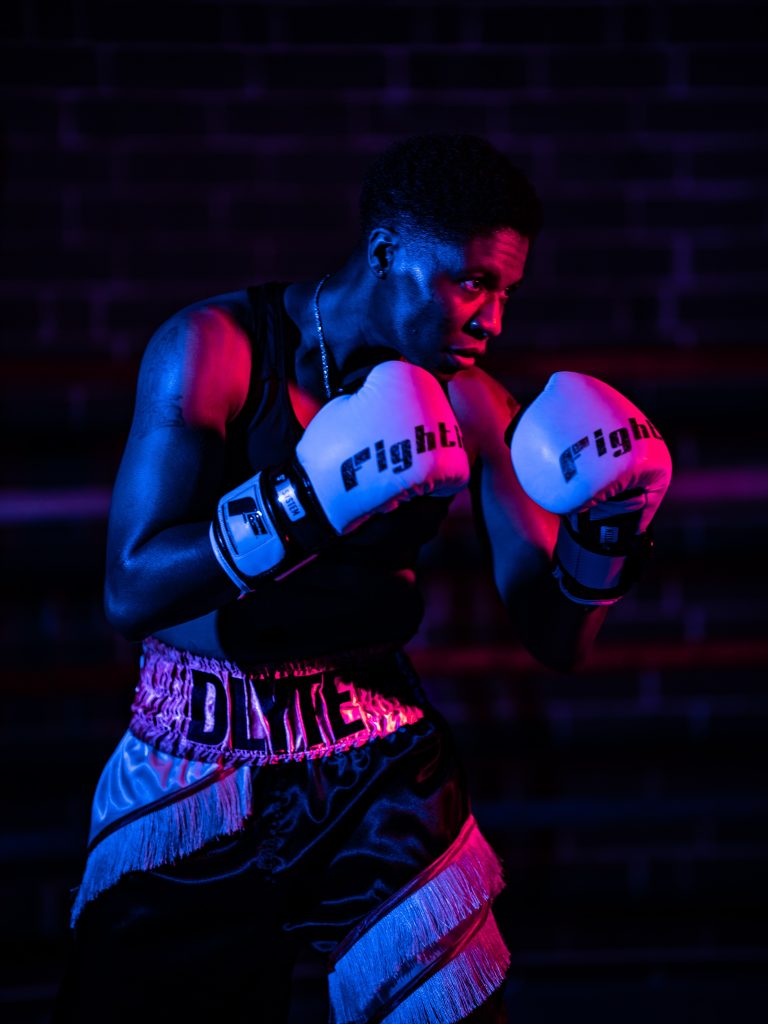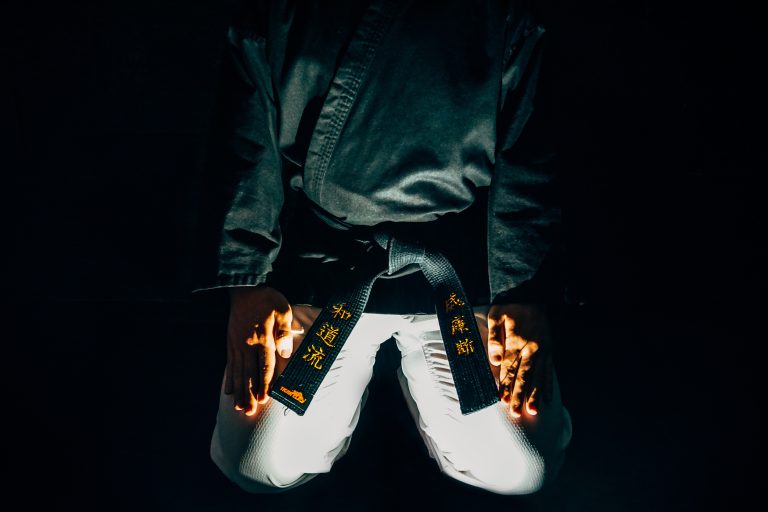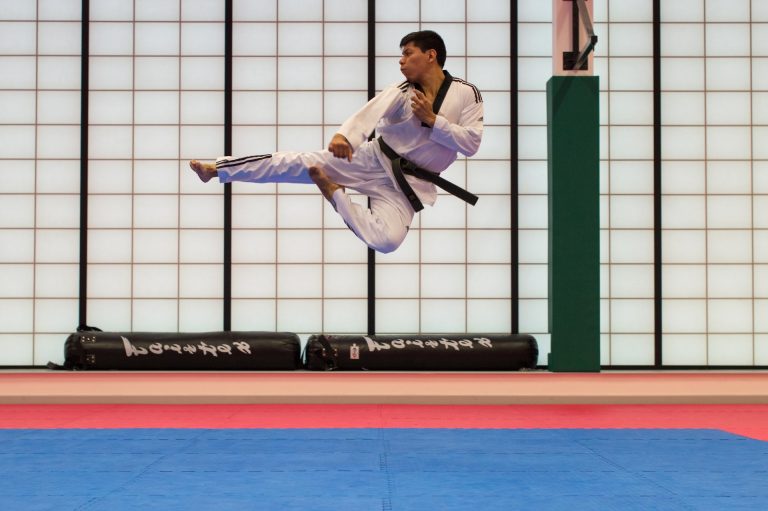Judo vs Jiu Jitsu vs Karate: Kampfkünste im Vergleich
Wenn es um Kampfkünste geht, gibt es eine Vielzahl von Optionen zur Auswahl. In diesem Beitrag werden wir uns drei der bekanntesten ansehen: Judo, Jiu Jitsu und Karate. Wir werden ihre Unterschiede, Gemeinsamkeiten und Vorteile untersuchen, um Ihnen bei der Entscheidung zu helfen, welche der drei am besten für Sie geeignet ist.
Judo
Judo ist eine japanische Kampfkunst, die sich auf Würfe und Bodenkampf konzentriert. Es wird oft als eine Form des “sanften” Kampfes bezeichnet, da es auf der Verwendung von Techniken beruht, um die Kraft und den Schwung des Gegners gegen ihn selbst zu nutzen. Judo ist auch eine olympische Sportart und wird von vielen Menschen weltweit als Form der körperlichen Aktivität praktiziert.
Jiu Jitsu
Jiu Jitsu ist ebenfalls eine japanische Kampfkunst, die Techniken aus Würfen, Hebeln, Schlägen und Bodenkampf kombiniert. Es ist speziell darauf ausgerichtet, einen kleineren und schwächeren Gegner gegen einen größeren und stärkeren zu verteidigen. Jiu Jitsu wird auch oft als eine Kunst des “sanften Übergangs” bezeichnet, da es darauf abzielt, den Gegner sanft zu kontrollieren und ihn dann ohne übermäßige Gewalt auszuschalten.
Karate
Karate ist eine japanische Kampfkunst, die aus schnellen Bewegungen und Schlägen besteht. Im Gegensatz zu Judo und Jiu Jitsu zielt Karate darauf ab, den Gegner schnell auszuschalten und zu besiegen, indem er geschickte und präzise Schläge und Tritte benutzt.
Gemeinsamkeiten
Trotz ihrer Unterschiede haben Judo, Jiu Jitsu und Karate auch einige Gemeinsamkeiten. Sie alle stammen aus Japan und haben ihre Wurzeln in alten Kampfkünsten. Darüber hinaus betonen alle drei Kampfkünste die Notwendigkeit von Körperbeherrschung, Disziplin und mentaler Entschlossenheit.
Unterschiede
Die offensichtlichen Unterschiede zwischen den dreien liegen in ihren Techniken und Zielen. Judo und Jiu Jitsu konzentrieren sich auf Würfe und Bodenkampf, während Karate eher auf schnelle Schläge und Tritte ausgerichtet ist. Judo und Jiu Jitsu eignen sich daher eher für Menschen, die sich auf die Verteidigung in Nahkampfsituationen konzentrieren möchten, während Karate für diejenigen geeignet ist, die sich auf die schnelle Selbstverteidigung konzentrieren möchten.
Vorteile
Unabhängig von der Wahl der gewünschten Kampfkunst gibt es einige Vorteile, die sie alle bieten. Alle drei Kampfkünste verbessern die körperliche Fitness, fördern die Flexibilität und verbessern die Koordination. Darüber hinaus verbessern sie auch das Selbstbewusstsein, die mentale Entschlossenheit und die Selbstdisziplin.
Fazit
Die Wahl zwischen Judo, Jiu Jitsu und Karate hängt letztendlich von den persönlichen Zielen und Vorlieben ab. Für diejenigen, die sich auf Verteidigung und Kontrolle konzentrieren möchten, ist Judo oder Jiu Jitsu oft eine bessere Wahl, während Karate für diejenigen geeignet ist, die sich auf schnelle Selbstverteidigung konzentrieren möchten. In jedem Fall bieten alle Kampfkünste eine Vielzahl von Vorteilen für die körperliche Fitness, die mentale Entschlossenheit und die Selbstdisziplin.
Judo vs Jiu Jitsu vs Karate: Kampfkünste im Vergleich
If you’re interested in martial arts or combat sports, you’ve probably come across the terms Judo, Jiu Jitsu, and Karate before. These are three of the most popular martial arts in the world, each with its unique characteristics and benefits. In this article, we’ll compare these three Kampfkünste and answer some of the most frequently asked questions about them.
What is Judo?
Judo is a modern martial art that originated in Japan in the late 19th century. Its founder, Jigoro Kano, developed it as a safe and effective way to practice the throwing and grappling techniques of Jiu Jitsu. In Judo, the objective is to throw your opponent to the ground or immobilize them with a grappling technique.
Judo is often used as a form of self-defense, as well as a competitive sport. It’s an Olympic sport, and there are world championships held annually.
What is Jiu Jitsu?
Jiu Jitsu is a traditional Japanese martial art that has been practiced for centuries. Its focus is on grappling, ground fighting, and submissions. In Jiu Jitsu, the objective is to take your opponent to the ground and control them with joint locks, chokes, or other submissions.
Jiu Jitsu is also used as a self-defense technique, but it’s not a sport in the same way that Judo and Karate are. There are Jiu Jitsu tournaments, but they are less common than Judo or Karate competitions.
What is Karate?
Karate is a martial art that originated in Okinawa, Japan, in the 19th century. It emphasizes striking techniques like punches, kicks, and knee strikes. Karate also includes blocking and dodging techniques to defend against attacks.
Karate is often used as a form of self-defense, as well as a competitive sport. It’s also an Olympic sport, and there are world championships held annually.
What are the differences between Judo, Jiu Jitsu, and Karate?
While all three Kampfkünste share some similarities, they are also distinct from each other. Here are some of the main differences:
- Objective: The objective of Judo is to throw your opponent to the ground or immobilize them with a grappling technique. The objective of Jiu Jitsu is to take your opponent to the ground and control them with joint locks, chokes, or other submissions. The objective of Karate is to strike your opponent with punches, kicks, knee strikes, or other techniques.
- Uniform: Judo and Jiu Jitsu practitioners wear a gi, a traditional Japanese uniform. Karateka wear a gi as well, but it’s often lighter and more breathable.
- Training: In Judo and Jiu Jitsu, practitioners often training with a partner to practice throwing or grappling techniques. In Karate, sparring is more common, where practitioners practice strikes and blocks against each other.
- Competition: Judo, Jiu Jitsu, and Karate all have their own competitions, but the rules are different. In Judo, the objective is to throw your opponent to the ground or immobilize them with a grappling technique. In Jiu Jitsu, the objective is to submit your opponent with a joint lock or choke. In Karate, points are scored for strikes and blocks.
Which Kampfkunst is the best for self-defense?
The answer to this question depends on your personal preference and circumstances. Judo and Jiu Jitsu are both effective for self-defense because they teach you how to throw an opponent to the ground, control them, and submit them with joint locks or chokes. These techniques allow you to defend yourself against an attacker without striking them.
Karate is also effective for self-defense because it teaches you how to strike an attacker with punches, kicks, and other techniques. However, striking an attacker can be dangerous, as it may escalate the situation.
Which Kampfkunst is better for fitness?
All three of these Kampfkünste are excellent for fitness. Judo and Jiu Jitsu are more similar to grappling and wrestling, so they often involve more close physical contact and strength training. Karate involves more cardio and conditioning because of the focus on striking techniques.
Which Kampfkunst is easier to learn?
This is a difficult question to answer because it depends on your own experience and background. Judo and Jiu Jitsu involve more complex techniques and require more physical contact with your training partner, so they may take longer to learn. Karate is more straightforward with its striking techniques, but it still requires practice and dedication to master.
Conclusion
All three of these Kampfkünste have their own unique characteristics and benefits. Judo is a modern martial art that focuses on throwing and grappling techniques. Jiu Jitsu is a traditional Japanese martial art that focuses on ground fighting and submissions. Karate is a martial art that emphasizes striking techniques.
Which Kampfkunst is best for you depends on your goals, experience, and personal preference. If you’re interested in self-defense, Judo or Jiu Jitsu might be best for you. If you’re interested in striking and cardio, Karate might be best. But no matter what you choose, all three of these Kampfkünste can be extremely rewarding and fulfilling to learn.
Inhaltsverzeichnis





